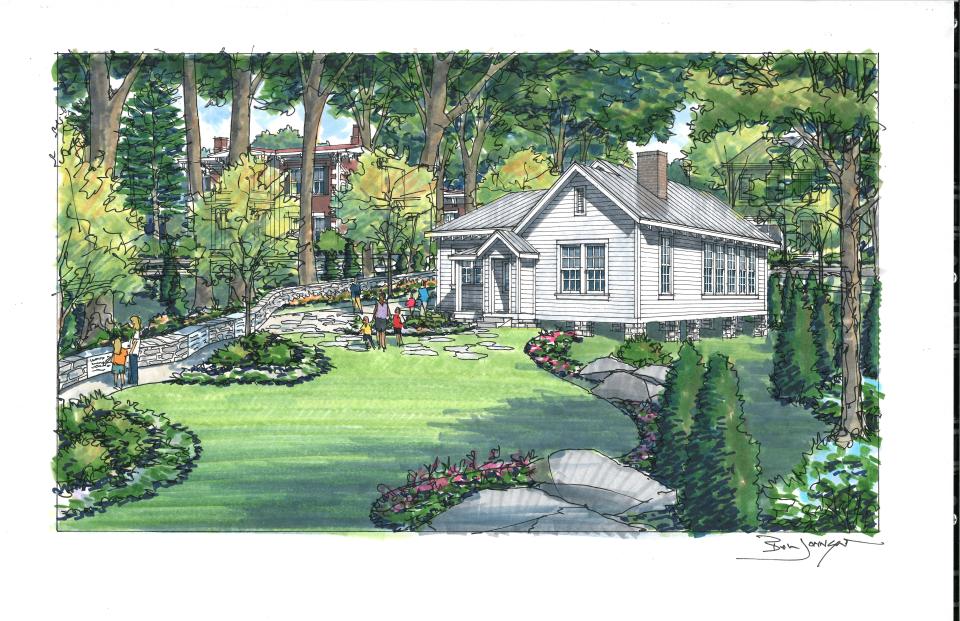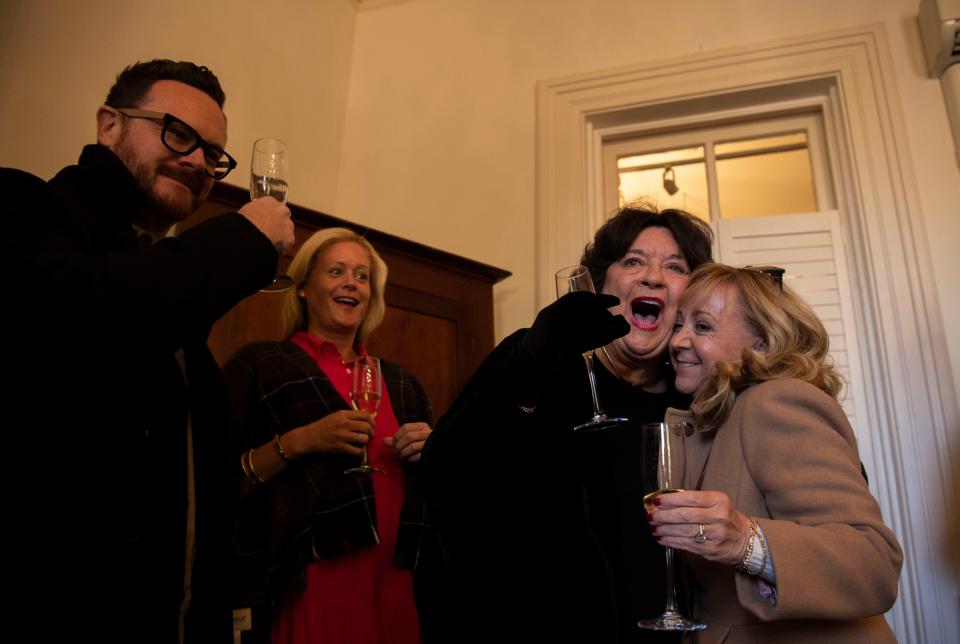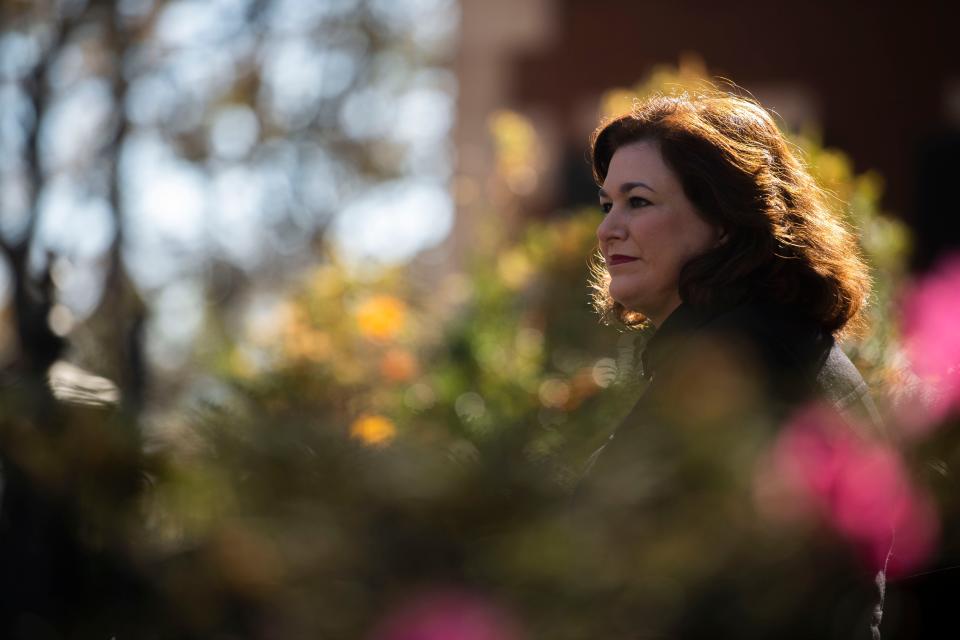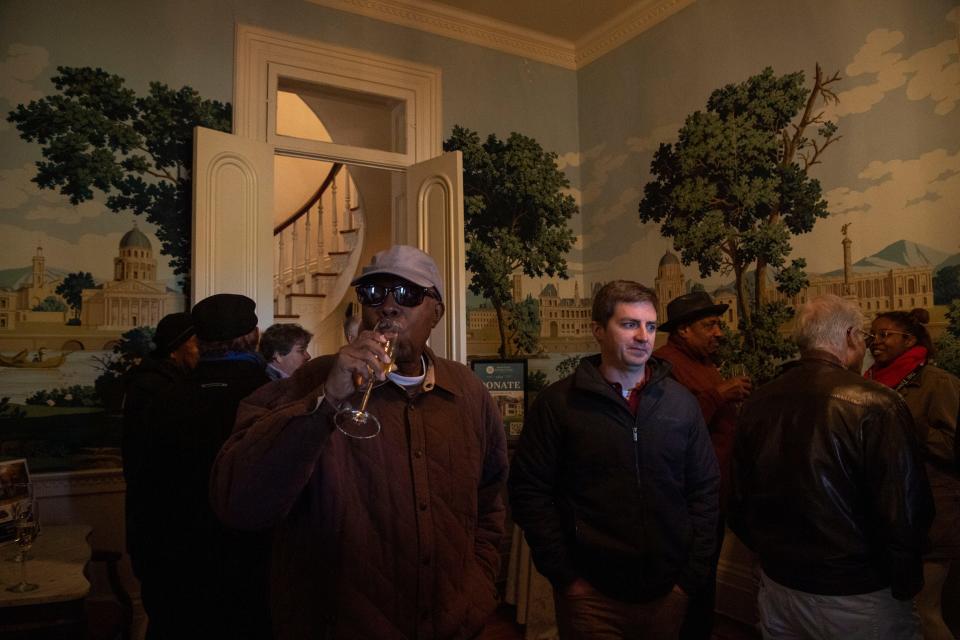Tennessee-based nonprofit to revitalize segregation-era school, turn into public landmark
As 85-year-old Georgia Harris looked at the land and historic buildings that will soon become Franklin Grove Estate and Gardens, the Williamson County native couldn't help but get emotional.
The 5-acre property, formerly home to O'More College of Design, is being repurposed into a public landmark that organizers hope will serve the community for generations, and a major addition to the grounds is in the works.
A historic segregation-era Rosenwald schoolhouse, the last of its kind in Williamson County, is set to move from its current home in Spring Hill to the new park in downtown Franklin by the end of the year.
“For the Williamson County Heritage Foundation to do this means everything to me,” said Harris, a former student of the Lee-Buckner school. “Sometimes it makes me a little tearful, but I am just so grateful that they bought the school, my school.”
Exploring a rich history

Harris attended the Franklin Grove Estate and Gardens groundbreaking on Nov. 1. The Heritage Foundation is partnering with Franklin-based Oversite to lead Franklin Grove’s transformation.
Oversite manages construction projects like Franklin Grove on behalf of property owners, according to a release from the Heritage Foundation. The firm's services include putting together the project team, managing the full budget, scheduling, design and construction.
Franklin Grove is the biggest project ever tackled by the Williamson County Heritage Foundation in its 56-year history, and it hopes to proudly showcase the deep roots and traditions of the county, according to Bari Beasley, the organization's president and CEO.
“It will be a landmark destination that creates a sense of place, timelessness and beauty for all people to engage with education, art, history, nature and community,” Beasley said.
The Franklin Grove property dates to the mid-1800s and was said to be the home of a “female seminary" before it became O’More College of Design in 1970.
The campus, which bestowed degrees in areas like fashion merchandising and graphic design, shut down in February 2018 after it merged with Belmont University to become the O’More School of Design.
The property will include four buildings when it opens to the public, and there are plans in the works for all of them, the foundation said.
One of the last remaining schools of its kind

The Lee-Buckner schoolhouse officially opened in 1927 and served Black children in Williamson County until its closure after the 1964-65 school year, once segregation ended and rural schools were consolidated.
It was one of 24 such schools in Williamson County and housed grades 1-8. In all, historians estimate Lee-Buckner educated 56 children.
Beasley hopes to have the one-room schoolhouse placed on a flatbed truck and driven the 17 miles to Franklin Grove by December, she said.
"We would love to have it moved at night and have the community line the streets to welcome it to its new home,” she said.
Plans for the schoolhouse at Franklin Grove include an immersive experience that will allow guests to sit at desks, look at artifacts, discover stories from students and reveal the lasting impact educational pursuits have had on Williamson County, according to the Historical Commission.
Lee-Buckner is the last-remaining Rosenwald School in Williamson County.
The brainchild of Sears CEO Julius Rosenwald and Tuskegee Institute founder Booker T. Washington, the Rosenwald Fund supported efforts to build Rosenwald Schools to educate Black children across the rural, segregated South. Between 1917-1932, there were 5,357 schools built. Today, only 10% of them remain.
For Harris and others who attended the school, there's a certain amount of pride that goes along with the preservation of Lee-Buckner, she said, noting The Heritage Foundation is ensuring her history and the stories of many like her will stay alive for future generations.
Mansions, gardens and more

The schoolhouse isn't the only historical building featured at Franklin Grove.
There are two late 19th century homes on the property. The LeHew Mansion was built in 1899, and the Perkins-Winstead Mansion was built in 1870.
Plans call for LeHew to house Williamson County's first innovation and entrepreneurial center. The 4,100-square-foot space will host Williamson County's newest businesses in partnership with Williamson Inc.
The center offers below-market office space in the hopes of retaining local talent, officials said.
“Our current vison for the chamber and the Heritage Foundation is for that building to serve as an incubator for a business to be able to launch and go from maybe a room to a 10,000-square-foot space in Williamson County,” Beasley said.
At Perkins-Winstead, guests will find the 6,000 square-foot Robert N. Moore Museum showcasing local and national art.
The museum will include a rotating display of painting, photography, sculpture, artifacts and furniture exhibitions and will serve as a place for education opportunities connected to the exhibitions and the mission of Franklin Grove, according to the Heritage Foundation.
Plans also call for an old O'More classroom building to be repurposed into staff offices, known as the Carriage House.
And about 3.5 acres of the property will be home to a plethora of green spaces, including water displays, seasonal plant and flower exhibitions and secluded places for reflection.
Landscaping plans also call for highlighting the property's signature, estimated 200-year-old McDowell oak tree, the Heritage Foundation said.
Construction is expected to be fully complete by late 2025.

This article originally appeared on Nashville Tennessean: Franklin Grove, Heritage Foundation effort begins work to open in 2025

